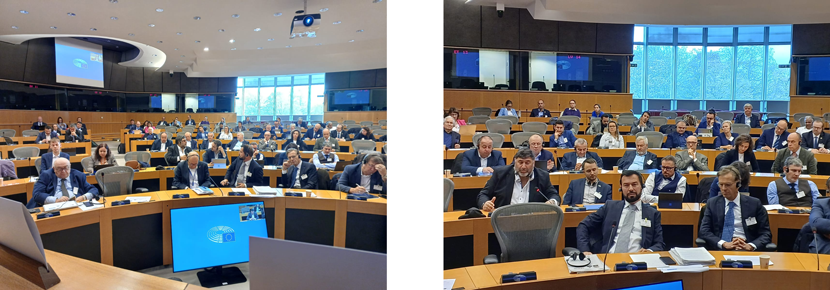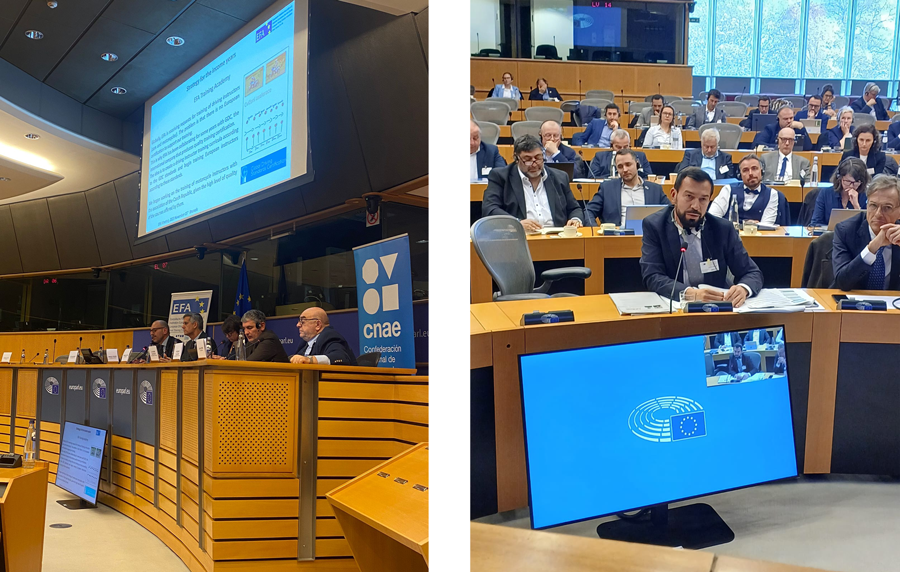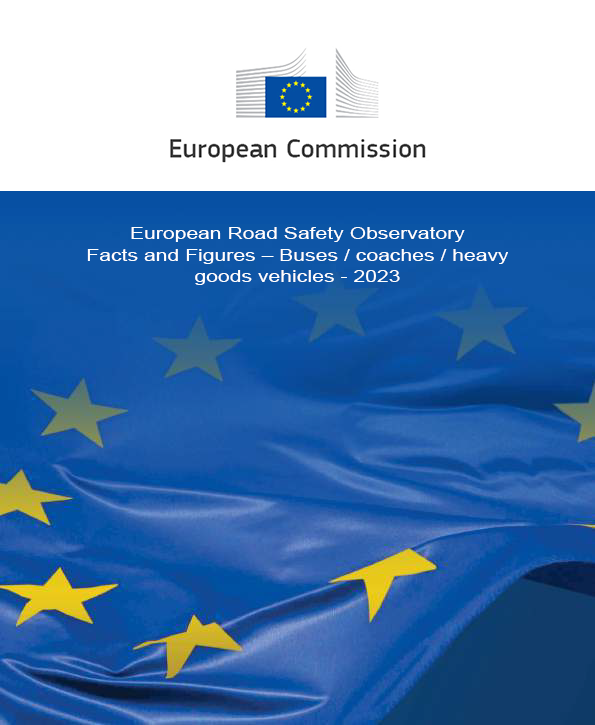EFA Event at EP on 15th Nov
The EFA event on the new driving license directive took place in Brussels on 15 November in the European Parliament.
Great success, with the large participation of national driving school associations and European institutions. The MEP Marco Campomenosi opened the day’s proceedings, followed by the Head of Office of DG Move, Mme Claire Depré. Several greetings from the leaders of the political parties, members of the TRAN Commission. High level speakers entertained the participants for the entire duration of the event. Among these we highlight: Ellen Townsend (Policy Director of ETSC); Nikolaos Nikolaou (Director of External Affairs of ERC); Raul Viladrich (European Delegate of CNAE); Federica Biassoni (Director of Traffic Psychology Unit of Research UCSC); Gregor Bartl (Director of the institute for traffic psychology “alles-führerschein.at”); Marteyn van Gasteren (R&I Manager International); Catherine BACHELIER (French Ministry of Interior); Frédéric GILLODES (Sécurité Routière); Emile Ménétrey (Smartphone ID); Simone Cotti (iQ Center).
EFA presented some of the best practices carried out in European driving schools and indicated some of the solutions proposed to obtain quality training in the near future in Europe. Below the morning Agenda of the event.


The 9th German Driving Instructors Congress 2023
The 9th German Driving Instructors Congress 2023 welcomed around 1,600 participants and over 60 exhibitors at the ESTREL Hotel in Berlin. In addition to four informative specialist dialogues at the lecture and exciting lectures in the plenum, there were numerous innovative products and innovations from and for the driving school industry on display at the accompanying trade fair.
The EFA Board was invited to participate on 11st November. President Enrique Lorca and Vice President Stefan Ebner described the work that EFA is carrying out on the proposed new driving licence directive. You couldn’t be there? Watch the video here.




The Seventh Sustainability Summit for SE Europe and the Mediterranean
EFA participated in the event organized by “The Economist” magazine, making a speech on the future of mobility. EFA General Secretary Manuel Picardi spoke about the mobility of the future and how it will be increasingly necessary to train new and current drivers on the use of ADAS. The aging population requires reviewing and verifying the skills of European drivers regarding vehicles with a high level of technology. Read more…
In a global landscape of geopolitical upheaval and fragmentation of the international order following the Russian invasion to Ukraine, there is widespread concern that the sustainability agenda could be pushed into the background. Yet, it is obvious that humanity has no time to lose. The climate crisis, the post-pandemic energy and supply-chain crises, the loss of biodiversity, persistent drought in many regions, refugee flows, and increased inequality, inter alia, constitute a cluster of mutually reinforcing emergencies. This means that there is need for urgent co-ordinated action at a global scale. The issues reflected in the United Nations’ Sustainable Development Goals must become a field for understanding and co-operation between governments and nations, contributing not only to a more viable future for our planet but global peace as well.
It is against this setting that Economist Impact Events have organized The Seventh Sustainability Summit for SE Europe and the Mediterranean entitled “How can sustainability foster global co-operation and peace?”, which is taken place on November 20th-21st 2023 in Athens.
A heartfelt thank you to the RSI Panos Mylonas association for coordinating and managing the session which included the intervention of EFA.



European Commission: Public consultation on a draft implementing regulation on the approval of certain safety systems of motor vehicles
The European Commission has launched a public consultation on a draft Vehicle Safety Implementing Regulation on models for the approval of certain safety systems of motor vehicles. The deadline for submitting comments is December 5, 2023.
The initiative introduces document models for the approval of a motor vehicle: intelligent speed adaptation system, driver inattention and fatigue warning system event data recorder.
The initiative aims to ensure consistency in the implementation of EU legislation on vehicle approval.
It also amends the type-approval rules (Regulation (EU) 2021/535) so that the mass of the energy storage system is included in the certificate of conformity of zero-emission vehicles.
As regards the next steps, the comments received will be taken into consideration during the definitive development of the initiative.

World Day of Remembrance for Road Traffic Victims
On 19 November, on the occasion of the WORLD DAY OF REMEMBRANCE FOR ROAD TRAFFIC VICTIMS, Filippo Randi, President of FEVR, participated in the event in Barcelona co-organised by the Spanish member association P(A)T who was present with, among the others, the president Vicente Sachez Gonzalez and the director and FEVR board member Yolanda Domenech to whom FEVR would like to thank for the opportunity to attend.
The Deputy Mayor for Prevention and Safety of the Barcelona City Council, Albert Batlle, and the Director of the Catalan Traffic Service, Ramon Lamiel, took part in the event.
Relatives and representatives of the Traffic Victims Associations P(A)T and Stop Accidents read poems and writings in homage to their loved ones whose lives were cut short due to road crashes. The Italian AIFVS association and member of FEVR was also represented by the Vice-president, Ezio Bressan, emphasising that beyond national borders road safety is an European and global issue.
In addition, a minute of silence was observed and music was played by Horia Mihon on the cello.
The event took place by the monument dedicated to Road Victims, that is installed next to the Nueva Icaria promenade and the Bogatell breakwater in Barcelona.


Balancing safety and independence: ETSC report highlights road safety challenges faced by older road users
The 20,640 deaths on EU roads last year represented a 4% increase in relation to 2021, as traffic levels recovered after the pandemic.
While the underlying long-term trend is downward (-9% compared to pre-pandemic year), it is not decreasing at a fast enough pace to reach the EU target of halving the number of deaths by 2030. Furthermore, progress continues to be very uneven between Member States. Lithuania and Poland reported the largest decreases, of more than 30%, between 2019 and 2022, although the fatality rate in Poland still remains above the EU average. By contrast, over the last three years, the number of road deaths in Ireland, Spain, France, Italy, the Netherlands, Slovakia and Sweden has remained stable or has risen.The European Union and national governments must adapt road safety policy to the needs of an ageing population, improving the safety of older pedestrians and cyclists with safe, well-protected infrastructure, while ensuring that older car drivers are not discriminated against purely on account of their age. These are the key conclusions of a new report released today by the European Transport Safety Council (ETSC) which sheds light on the vulnerabilities of older road users and calls for a comprehensive approach to ensure their safety while promoting active travel and independence. Read more and download the report at

European Road Safety Observatory: Facts and Figures – Buses/coaches/heavy goods vehicles Report
Of all road fatalities in the EU in 2020, 14% and 2% respectively died in a crash involving an HGV or a bus/coach. This proportion has remained virtually stable between 2011 and 2020 for crashes involving an HGV, but has decreased slightly for crashes involving a bus/coach. The pattern of fatalities in HGV crashes was not the same in all EU Member States. Based on the “mortality” indicator, two Baltic States (i.e. Latvia and Estonia) scored worst in terms of HGV fatalities, along with Poland, Czechia, Lithuania and Finland (which is generally one of the better performing Member States in terms of the relative number of road fatalities).

New UN Regulation to enhance safety of transport of children in buses and coaches
The majority of the buses and coaches currently in use worldwide are not equipped with safety-belts. And if they are, they are equipped with safety-belts designed to protect adults by means of 2-point or 3-point harness seat belts. These types of safety-belts are not suitable for use on and by children because they could lead to serious injuries and event fatalities in road crashes.







